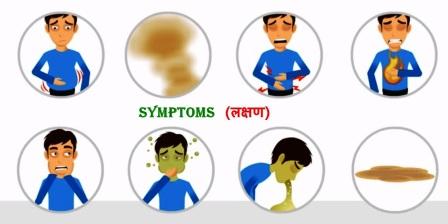
While mild indigestion is not usually a cause for alarm, it can be a sign of a more serious condition, a condition known as nonulcer dyspepsia. Although indigestion is not life-threatening, it can affect your quality of life, causing you to eat less and miss work or school. There are a number of ways to relieve a bout of indigestion and to prevent it from coming back.
You may experience uncomfortable discomfort in the upper abdomen and chest area. You may also be feeling full or bloated, or experience heartburn. If you are not sure what triggered your symptoms, try avoiding certain foods and liquids. Eating fried or fatty foods can cause indigestion, and avoiding them is a good way to alleviate the symptoms. Some people may experience a burning sensation in the chest or neck, as well as belching.
In general, indigestion symptoms include pain in the upper abdomen, discomfort after eating, and feeling full. Depending on the severity of your indigestion, you may also feel belching, or nausea. It may also be accompanied by heartburn. Symptoms of indigestion may increase when you are under stress. In addition, excessive air swallowed during eating can cause symptoms of indigestion to become more severe. For more information, consult a doctor or health professional.
Your healthcare provider will review your medical history and discuss your symptoms and lifestyle. If you have indigestion, you may be suffering from a symptom of another digestive condition, such as an ulcer or a gallstone. It’s important to discuss any symptoms with your healthcare provider, as these can be indicators of other health problems. For example, you may be experiencing frequent episodes of indigestion, if you notice any of these signs.
Other causes of indigestion include cholelithiasis, pancreatitis, and coronary heart disease. In rare cases, indigestion can be the result of other health problems, such as chronic kidney or pancreas diseases. While indigestion can be a mild symptom, it can be a sign of more serious conditions. Symptoms of indigestion can lead to bleeding, ulceration, or a sore throat.
For the first time, you may experience indigestion symptoms after eating. Inflammation of the stomach, or indigestion, may be an early symptom of a more serious health condition. In addition to a burning or aching sensation, you may also experience nausea, vomiting, and belch. In the worst cases, you may even have a heartburn that radiates to your back and neck. Your doctor will perform a physical examination to determine if your indigestion is a chronic condition.
Rarely, indigestion can be a sign of a more serious problem. Your health care provider will order imaging tests to check for bowel obstruction and other problems on an upper endoscopy. If symptoms persist for more than a day, a consultation with a gastroenterologist may be necessary to check the condition. Often diet changes provide relief, but if the condition persists, your doctor may recommend medication.
Other symptoms of indigestion include burning, tightness, or heat in the upper abdomen. Some people experience heartburn and belching during an upset stomach. If you have any of these symptoms, you should contact your doctor immediately. If you have chronic indigestion, your doctor may also recommend medication. A combination of diet and medication may be the best way to find a cure for an upset stomach.
If you don’t have an acute indigestion, site salvadorcastellote.com
can recommend medications to help you manage it. Some indigestion medications can cause serious side effects, so be sure to discuss your treatment options with your healthcare provider before starting any new medications. If you feel like you can’t control your symptoms, a healthcare professional will recommend medication to help relieve your pain. If you have chronic symptoms of indigestion, your doctor may prescribe a proton pump inhibitor.
The cause of indigestion is not completely understood. Some people experience indigestion only after eating certain foods. Others experience it almost every day and may have no symptoms at all. However, indigestion is often a symptom of a more serious condition, and your health care provider will recommend a course of treatment that will address both the underlying cause and the symptom. Your doctor may prescribe a combination of antibiotics and acid blockers. Some people may also take antidepressants for a short period of time.